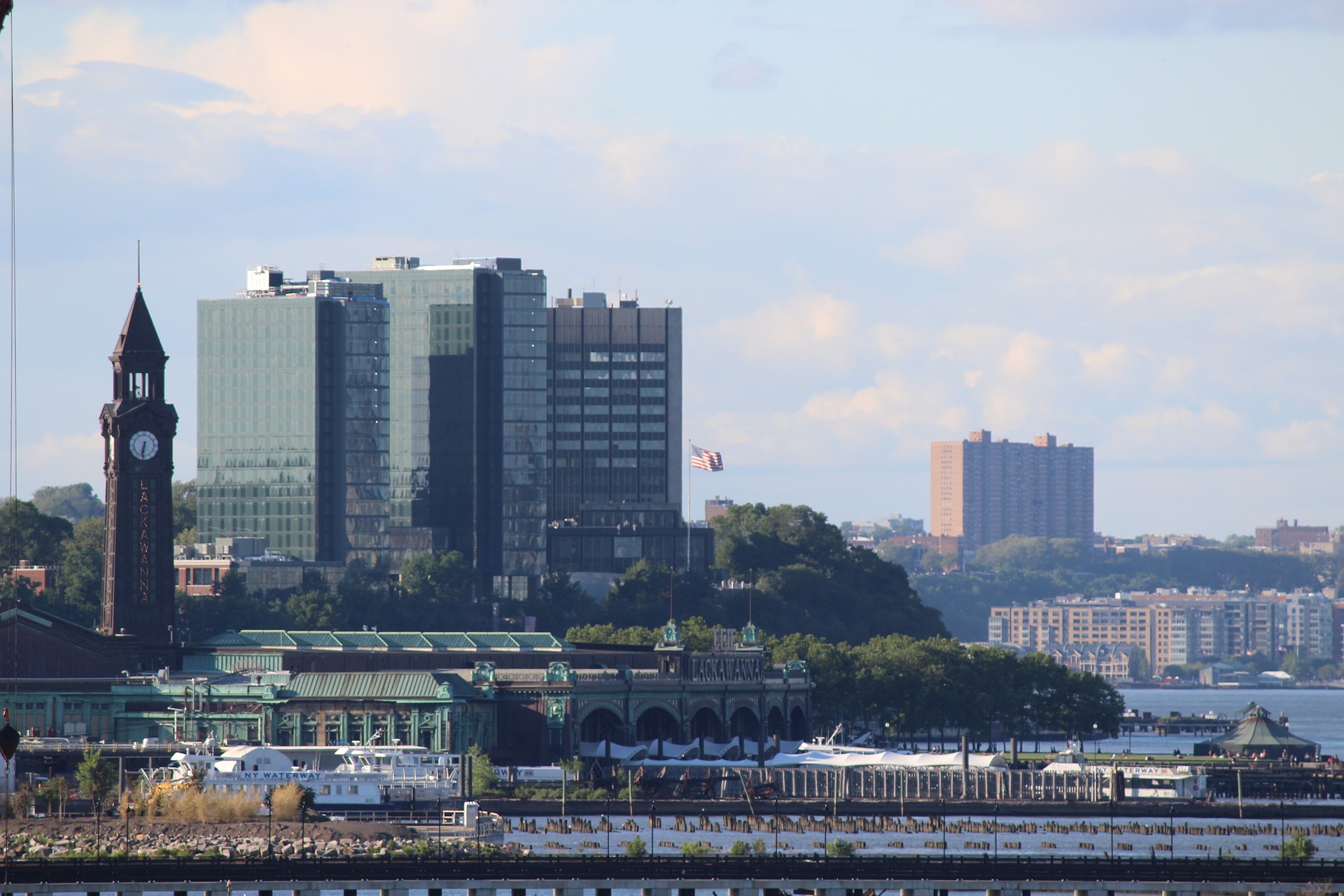Transportation policies enacted in Hoboken, N.J. over the past several years are paying off in the form of fewer pedestrian deaths and injuries.
The city has adopted daylighting, bike lanes, lower speed limits, and intersection redesigns to make its roads safer. The citywide speed limit was reduced to 20 miles per hour. Crosswalks have been painted and repaved to make it easier for drivers to see them. More than 40 curb extensions have been installed to direct cars farther from intersections. Bike lanes now grace about half of Hoboken’s roads.
The mayor says that a bucket of paint enables the city to create a curb extension and high visibility crosswalks to realize a much safer environment at a modest cost. The measures taken by Hoboken have resulted in no traffic death since January 2017, with injuries falling 41%. This safer environment occurred while pedestrian deaths in the U.S. reach 40-year highs.
Daylighting, implementing measures that prevent cars parking at the corner of an intersection, has been a key strategy. This initiative was realized with bump outs—extensions of sidewalks or the creation of small rain gardens in lieu of additional pavement, or the addition of bike racks or bollards.
Related Stories
| Dec 7, 2012
Georgia court limits contractors’ ability to foreclose on liens
The Georgia Court of Appeals ruled in 182 Tenth, LLC v. Manhattan Construction Company that lien claimants such as contractors, subcontractors, and materialmen, may not foreclose on a lien that includes unpaid general condition costs.
| Dec 7, 2012
San Francisco real estate records will include ‘green labels’
Ecologically-sustainable building practices, or “green labels,” will now be included on official land records maintained by San Francisco.
| Dec 7, 2012
Tokyo’s Green Building Program has reduced power consumption by 20%
Tokyo city officials calculate that its Green Building Program reduced energy consumption by 20% since its inception, a statistic they identify as the reason the power stayed on during the 2011 earthquake.
| Dec 7, 2012
New flexible options make achieving LEED certification easier on projects outside the US
A new set of Global Alternative Compliance Paths, or Global ACPs, are now available for all commercial projects pursuing LEED green building certification using the 2009 versions of the rating systems.
| Nov 29, 2012
New York contractors say they will pay tax despite a court ruling that the tax is unconstitutional
The New York Building Congress says it will voluntarily pay a tax declared unconstitutional by the courts because, it says, the money is vital to maintaining the city’s transportation infrastructure.
| Nov 29, 2012
Storms like Sandy highlight the need for stricter codes, says insurance expert
Experts on insurance, weather, and catastrophe modeling say the role of climate change in Hurricane Sandy and future storms is unclear.
| Nov 29, 2012
Quake simulation to test concrete building's strength in California
Researchers aim to gauge how buildings constructed with reinforced concrete withstand an earthquake by conducting a simulation test at a two-story building built in the 1920s in El Centro, Calif.
| Nov 29, 2012
AGC offers stormwater compliance webinar
An effective document management system is necessary to stay in compliance with new and forthcoming stormwater runoff requirements, says the Associated General Contractors of America.
| Nov 29, 2012
Government policies help accelerate adoption of green building
Green procurement policies or green building mandates can help accelerate the adoption of green building practices, according to research by Timothy Simcoe and Michael Toffel.
















